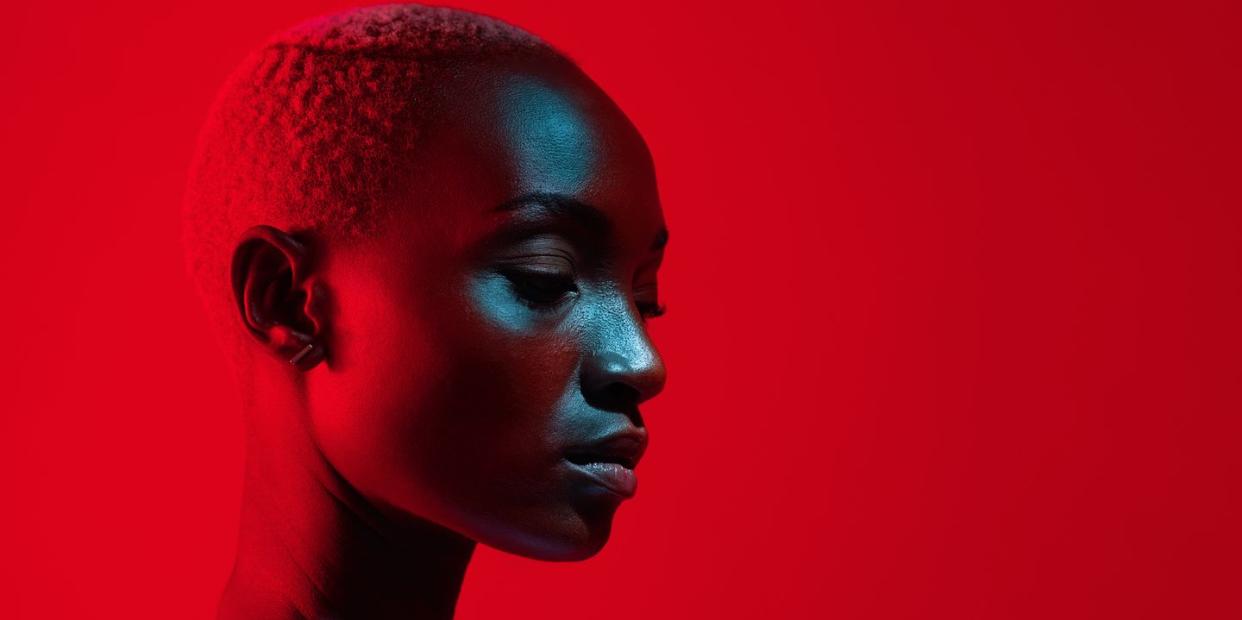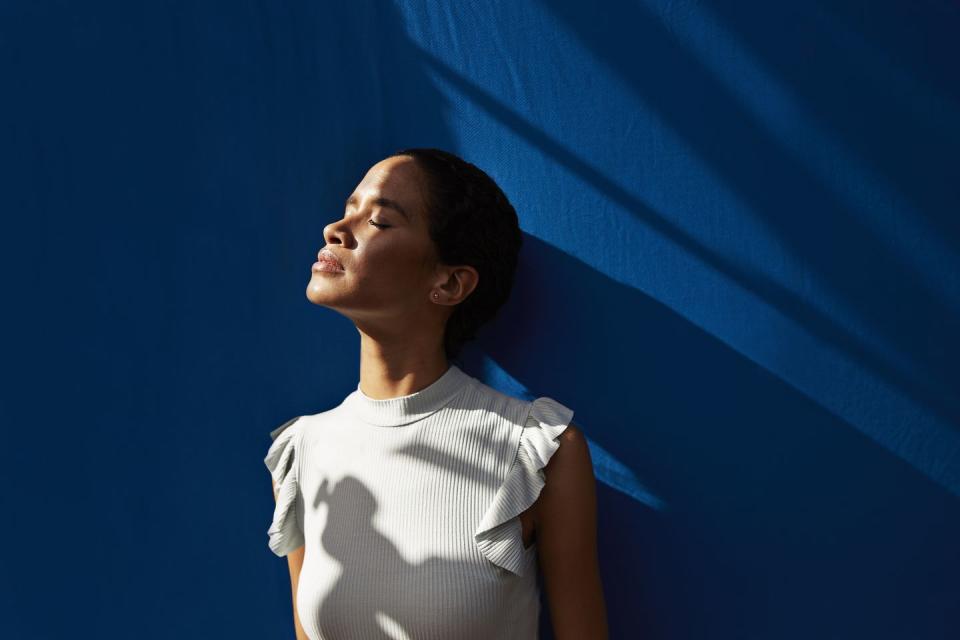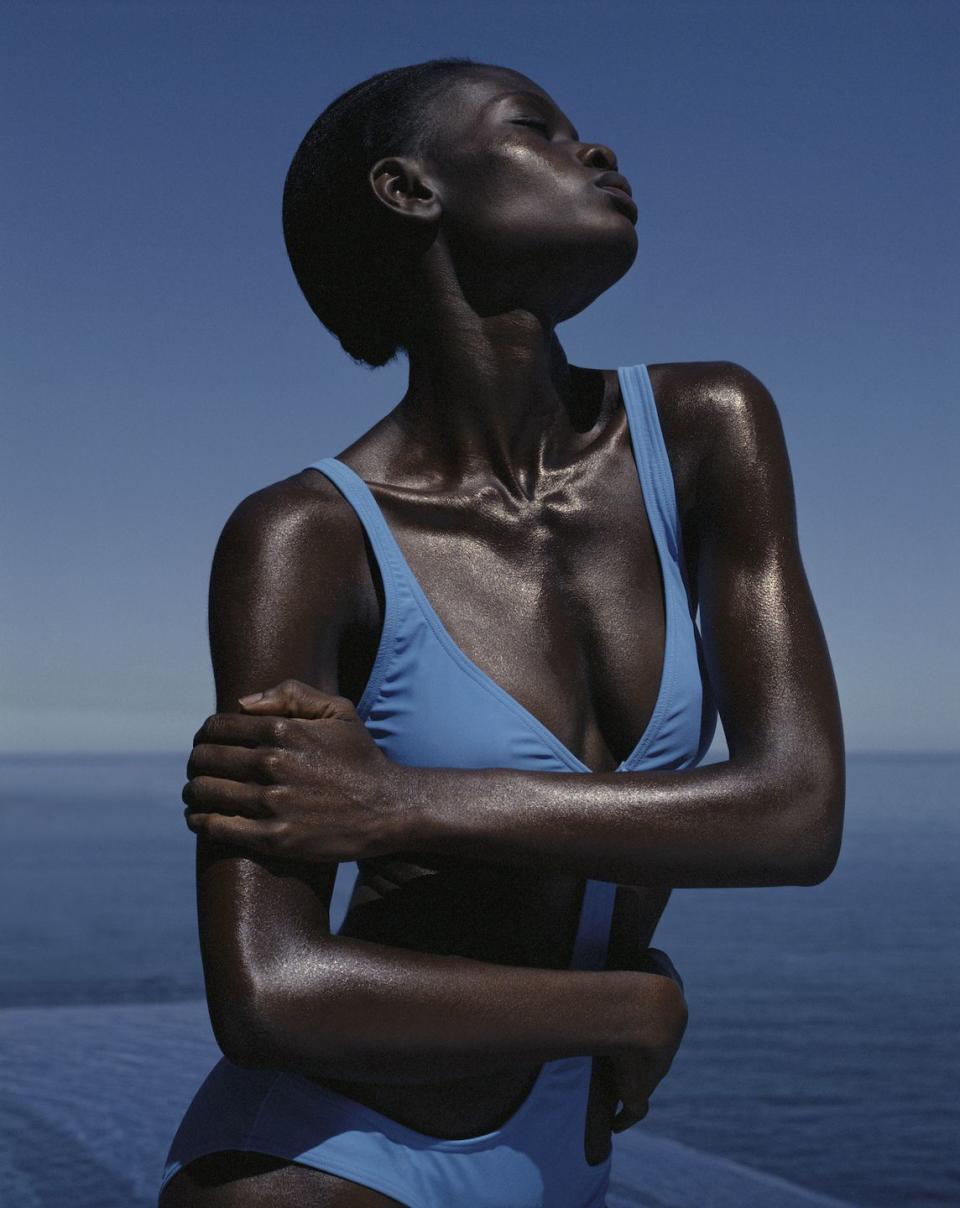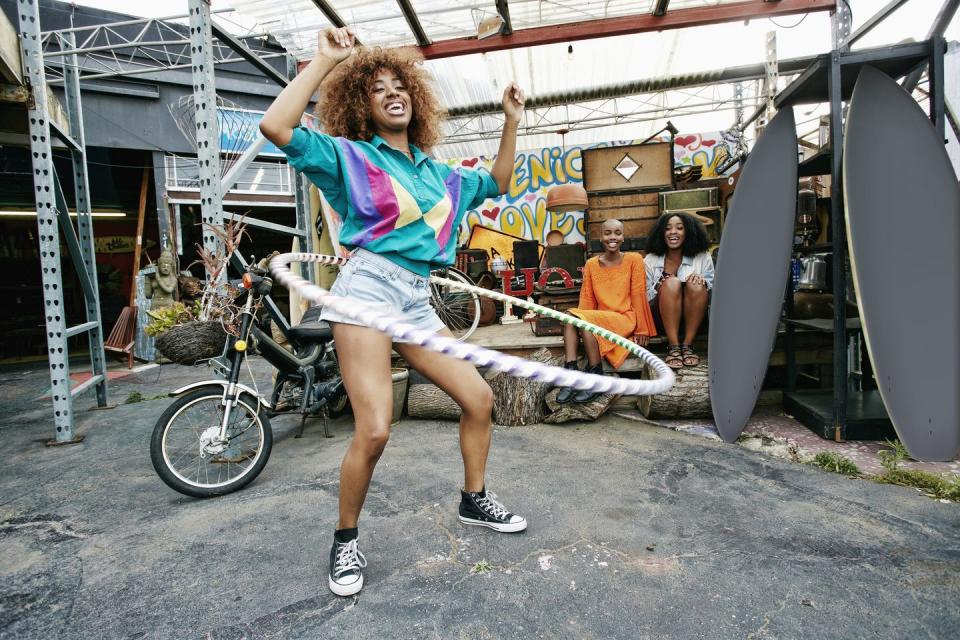For Black Women, Self-Love Is A Revolutionary Act

I once ran a wellbeing event and during the day, I remember asking participants if they loved themselves. A simple enough question, you might think. One attendee - a fellow Black woman - took time to ponder her answer, before declaring: 'Gosh, no-one's ever asked me that before and, honestly, no. I don’t.' Her answer has stayed with me ever since.
The dehumanisation of Black women has historical roots that are deep and thick. Many have been conditioned not to see Black women - especially dark-skinned Black women - as fully human, credible or desirable. In some cases, society has been conditioned not to see Black women at all.

It's for this reason that Hollywood film The Woman King, featuring a majority cast of dark-skinned Black women as protagonists, feels so momentous - because it has never happened before. As such, we steel ourselves. We have adapted, developing coping mechanisms to protect us from the experiences of such lovelessness. And while we more than thrive, it can, at times, be incredibly hard to access self-love.
Let's take Dr Autumn Adia Griffin's definition of self-love, from her text Finding Love In A Hopeless Place: Black Girls' Twenty-First Century Self-Love Literacies, which she characterises as: 'the will to extend one’s self for the purpose of nurturing, celebrating, preserving, or protecting one’s own or another’s physical, mental, emotional, or spiritual growth.' Given that it requires taking up space, pushing for growth and honouring all that you are, it strikes me that it is a revolutionary act to have the audacity to love yourself as a Black woman.
As a child, I learned that it was ‘better’ to be lighter. I remember one sobering moment, when I was around 7 years old, and a young white girl asked my mother why I was the same colour as ‘poo-poo’. I wasn’t alone. Decades later, Black parents still reach out to me, devastated that their children are being likened to faeces by peers refusing to play with them in the playground, resulting in children, as young as four, trying to wash their skin off. That kind of social exclusion is corrosive to self-esteem and to building a positive picture sense of self.

You might have heard of the Clark Doll Test, which was conceived by psychologists Dr Kenneth and Dr Mamie Clark in the 1940s to observe the biases and racial perceptions among children aged 3-7 at the height of US segregation. At the time, the test revealed that many children, including white children, associated positive attributes with white skin and negative attributes with Black. Since then, the test has been performed across the globe, including the UK, and to this day continues to yield similar results. Children learn racism, including internalised racism, pretty damn quickly. So much so, that they begin to pick up on who is valued in society, who isn’t, and where they belong within that spectrum, before they can even ride a bike.
Today, this looks like disproportionate outcomes in domestic abuse cases; Black women being 84 per cent more likely to receive online hate-speak than white women. It means disproportionate healthcare outcomes, from delays being treated and diagnosed for breast cancer, to Black women being four more likely to die in childbirth. It's in the policing of our hair, employment outcomes and colourism cropping up in wage gap statistics. And that’s before we even begin to unpack the corrosive tacit agreement in the 'beauty industry' that to have lighter skin and Eurocentric features is to somehow be more desirable, more feminine and worthier of products that actually suit your needs and don't cause you any longterm harm. Nothing about racism is about love.
With this constant exposure to these somewhat uninspiring, at best, and terrifying at worst outcomes, to have the audacity to love yourself as a Black woman is an act of revolution.

In order to ask that others treat Black women with basic human dignity, respect and loving care, we need also to do that for ourselves.
To intentionally practise self-love, is to reclaim the parts of our humanity that have been stripped from us by society. This is not only necessary and a reinforcement of our inherent worthiness, but it counteracts the negative programming so many have ingested about Black women. From parents, to partners to children, to peers, we teach people how to treat us by the way we treat ourselves. It is vital for individual and generational healing and, for some, it will be life-saving.
Here are some steps to help you on your self-love journey:
● To practise self-love is to declare in both words and action that you are worthy of rest without needing to ‘earn it’ and working yourself into a regular state of burnout.
● It is to be intentional and counteract any negative chit-chat about yourself and replace it with loving words to affirm your brilliance:- I am loving, I am smart, I am kind, I am powerful, I am deserving of wellness and ease, I am worthy.
● It is to be curious about how you can treat your body with better care, tenderness and respect for carrying you this far.
● Practising self-love encourages us to create new habits, so instead of waking up in the morning to scroll through social media, could you start a new habit by taking time to list the things you love about yourself? If you struggle, just start with one thing and build on it.
● Self-love also encourages us (and I know this isn’t always straightforward) to limit / no longer put yourself in hostile environments and seek out spaces (on and offline) that are intentionally curated for Black women.
As bell hooks said - ‘love is an action.’ To practise self-love we have to be intentional, and choose to nurture our relationships with ourselves as we would any other relationship. To build trust in yourself by doing the things you say you are going to do for yourself, perhaps by prioritising your mental health by taking that breathwork or meditation class, or by saying no, or by asking for what you need and asking for help.

Start by asking yourself...
● What is the current relationship you have with yourself?
● How can you celebrate yourself today - just because?
● How can you apportion space in your diary for intentional rest every day?
● What one thing can you do, that you keep putting off, that will prioritise your wellbeing?
● Can you practise holding and maintaining boundaries by learning to say no? Try some of these:-
-No thank you. That doesn’t work for me.
-No. That’s not acceptable. I will not allow you to harm me in this way.
-No. I don’t have capacity.
-No.
For me, it’s the little things, not the grand gestures, that nurture self-love. From being intentional with whom I spend time with, by starting my day by consuming something loving and nurturing, to being intentional with the food and drink I put in my body and being uncompromising on my rest days.
Make no mistake, to choose self-love in this way is both simple and hard. I am certain I haven't mastered my relationship with myself and probably never will. But there is joy in continuing to grow. I learn new things about myself and others and I wouldn't want it any other way. But what I know for sure is this, once you are on the path, it is both life-changing and liberating.
Nova Reid is a thought-leader, TED Speaker and writer. Her book The Good Ally, published by HQ Stories, is out in hardback and paperback now. For more, head to www.novareid.com
You Might Also Like


